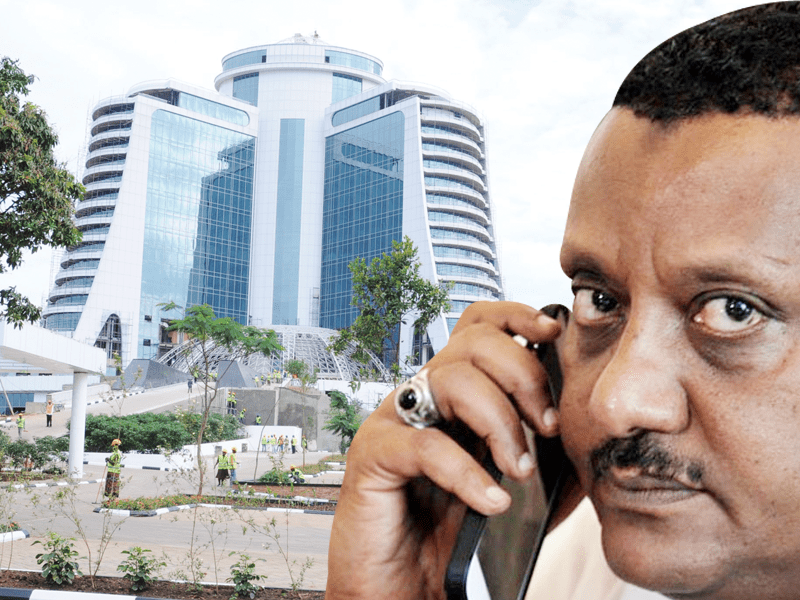Court of Appeal in Kampala has sustained the earlier ruling which ordered AYA Investment Uganda to fulfil its debt obligation to the Industrial Development Corporation (IDC) of South Africa Ltd, saying the Ugandan company cannot appeal in the matter where the commercial court endorsed the payment of Shs611 billion award to the South African financiers.
In 2021, the Industrial Development Corporation of South Africa Ltd attempted to seize the hotel to recover a debt of $118 million but court issued an order restraining the South Africans from going on with the seizure process.
The money is part of the financing contract signed between AYA Investment and the South IDC to finance the construction of a hotel in 2007 in Nakasero, Kampala. AYA Investment says IDC made it hard for them as it delayed the disbursement of the money to them, which allegedly also resulted in delay of the project completion.
AYA also cited disputes with Uganda Revenue Authority (URA) on what taxes to pay but also admitted that it was going to be tough completing the construction in time, especially due to Uganda’s landlocked nature.
Further, in 2017, AYA Investment entered into another deal with a Belgium-based hotel company, Carlson Rezidor Hotel Group (now Radisson Hospitality) in January 2017. However, this was short-lived as Radisson withdrew six months later. It was replaced in September of the same year by a South African hotel brand, Sovereign Hotels on a short-term basis to oversee the opening the following month.
American group, Wyndham Hotels, and Resorts, then was hired by AYA boss Muhammed Hamid, in 2018 to manage the hotel, but this did not go far. The hotel is currently trading as WIN 5 Hotel & Spa since February this year. The branding has since changed from Pearl of Africa to Win 5, amidst reports that the Libyan foreign investment firm, LAICO has taken the majority holding of the hotel.
It is not clear how many companies and individuals have claims on AYA Investment, but one of the longest-running claims is by meat processing company, Fresh Cuts, which says that in 2017 AYA was supplied with assorted meat products worth Shs44.9 million which it failed to pay for.
Through Haguma Law Chambers and Advocates, Fresh Cuts secured commitments by AYA Investment to pay but it didn’t fulfil the pledge.
On September 12, 2018, Mengo Chief Magistrate Sarah Mbonye ordered AYA Investment to clear the Shs44.9 million debt plus a 25 per cent per annum interest from the year of default to the year of completion of payment, with allowable tax deductions of Shs10 million.
After failing to enforce this directive against the hotel owner, Fresh Cuts asked the court in 2021 to declare AYA Investments bankrupt following the expiry of the time agreed to clear the date as per the Insolvency Act, however did not happen.
In 2018, KCCA warned it would close the hotel located in Nakasero Kampala over failure to pay local hotel tax that had accumulated to almost Shs34 million. The hotel was requesting concessions like paying in instalments which KCCA rejected.
At the same time, the electricity bill was rising and by 2021, electricity distributer, UMEME was demanding over Shs800 million and resorted to power disconnections to force the company to pay.
Last year, Global company Sanlam General Insurance sued AYA Investments for breach of insurance contracts. Court ordered the company to pay a total of about Shs175 million to Sanlam.
AYA Investment joins businessmen like Patrick Bitature and Hamis Kiggundu whose companies do not want to pay debts.
Last month International Chamber of Commerce Court of Arbitration in London, the United Kingdom, has ordered Ugandan businessman Patrick Bitature, his wife Carol Nzaro and four of their companies to pay South African lender, Vantage Mezzanine Fund, Shs244 billion after he argued in Ugandan courts that the South African lenders gave him the money illegally and therefore he was not obliged to pay back.
Still this year in June the Supreme Court ruled that $11million which Diamond Trust Bank Uganda and Diamond Trust Bank gave to Kiggundu as a syndicated loan was legal after the businessman claimed the two sister banks did it illegally as “contravened the Financial Institutions Act. The case still hangs in court.
However, economists, banks, and financial regulators fear that the bad habit of Ugandan businessmen who get money from foreign sources and then don’t want to pay back is likely to negatively impact on foreign investment in the country.





